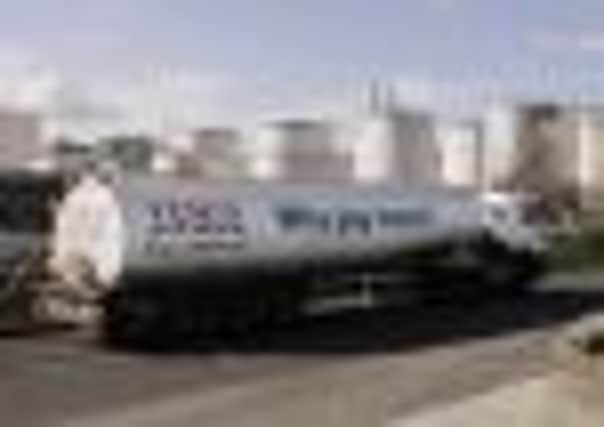Fuel tankers strike: Drivers told not to panic as talks fail


About 60 Unite officials turned down the offer which was thrashed out during six days of talks between the union and representatives of six fuel distribution companies.
The union, which represents more than 1,200 tanker drivers involved in the dispute, said it planned to reconvene talks with the help of conciliation service Acas. But the terms of an earlier ballot on industrial action will expire tomorrow and if there is no deal the union will have to name strike dates by then, unless employers agree to extend the deadline.
Advertisement
Hide AdAdvertisement
Hide AdAny strike, which would require seven days’ notice, could hit 90 per cent of Britain’s petrol station forecourts and stocks would begin to run dry within 48 hours of any action, according to Unite.


The government last night called on the drivers and their employers to work towards reaching an agreement amid fears that motorists could face severe shortages at the pumps if tanker drivers withdrew from the roads.
Before Easter, huge queues formed on petrol station forecourts and some ran dry as people rushed out to fill up their cars, following government advice to ensure that their tanks did not drop below two-thirds full. Diana Holland, assistant general secretary for Unite, said last night the terms of the deal on the table did not give drivers the confidence “that the problems gripping the industry would be addressed fully by employers”.
She said: “While there has been some progress, it is clear that our members need more guarantees and assurance from the employers about their commitment to meaningful minimum standards.
“We call on the employers to engage with us so we can reach a meaningful settlement to bring an end to the uncertainty in the industry. We have made contact with Acas so we can find a way through this without the need for industrial action.
“However, there is an industrial action law in Britain and the ballot is running out on Friday. Therefore, what we’re going to do is all we can to ensure that the ballot is legally valid.”
Drivers voted to strike almost a month ago, claiming that the health and safety of drivers was being compromised by employers, who they say are increasingly focused on profits. Industrial law states that any action must be taken within a month of the ballot.
Ms Holland urged motorists not to rush out and buy fuel following the collapse of the talks.
Advertisement
Hide AdAdvertisement
Hide Ad“Please do not panic,” she said when asked what her message was to motorists. “It is very clear at this point in time that we are not on strike and we have not announced that we are going on strike.”
Edmund King, president of the AA, also called on motorists to refrain from panic buying.
“This does not necessarily mean that there will be a strike as talks are likely to resume,” he said.
“Our message to drivers is to continue with their normal buying pattern for fuel. There is no shortage of fuel and we don’t want to recreate another self- inflicted shortage.”
The UK government came under fire earlier this month after it performed a U-turn on its advice to motorists in the case of a strike.
After several days of urging motorists to fill up, the Department for Energy and Climate Change suddenly changed guidance to say there was no need to queue on petrol forecourts.
Energy and climate change secretary Edward Davey said yesterday: “We are disappointed that an agreement has yet to be reached.
“We understand that these are complex issues but urge both parties to work towards a negotiated resolution with the support of Acas.”
Advertisement
Hide AdAdvertisement
Hide AdHe added: “The government continues to believe that any strike action would be wrong and unnecessary.”
Peter Harwood, Acas chief conciliator, added: “We are disappointed at today’s outcome, following the intensive talks at Acas over the last two weeks. We are contacting the parties and the challenge now is to see if we can find a way forward.”
Brian Madderson, chairman of RMI Petrol, which represents independent petrol retailers, also expressed his disappointment at the breakdown of the talks.
He added: “We had hoped the discussions would result in a resolution.”